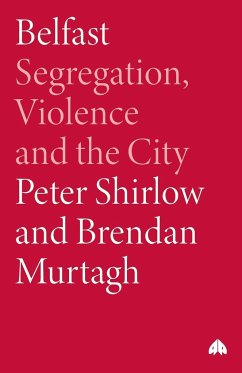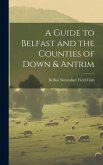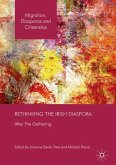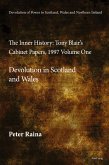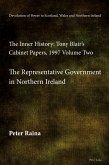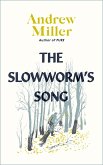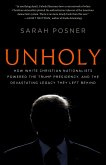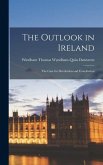It is a commonly held view that the city of Belfast is emerging out of conflict and into a new era of tolerance and transformation. This book challenges this viewpoint. The authors pinpoint how international peace accords, such as the Belfast Agreement, are gradually eroded as conflict shifts into a stale and repetitive pattern of ethnically-divided competition over resources. The book offers a vivid portrait of the human drama and brutality of the conflict in Belfast. The authors argue that the control of place remains the most important weapon in the politicization of communities and the reproduction of political violence. Segregation provides the laboratory within which sectarianism continues to grow. Examining the implications of these social divisions, the authors draw upon a wide international literature and provide insights that will be useful to students of geography, planning, politics, sociology and peace studies.
Paris, Jerusalem and Belfast are cities that are shaped by political violence, death and the injustices caused by segregated living. But divided cities are becoming places within which policy makers and politicians project an image of normality despite the facts of social injustice, victimhood and harm. It is a commonly held view that the city of Belfast is emerging out of conflict and into a new era of tolerance and transformation. This book challenges this viewpoint. The authors pinpoint how international peace accords, such as the Belfast Agreement, are gradually eroded as conflict shifts into a stale and repetitive pattern of ethnically-divided competition over resources. This book is a vivid portrait of how segregation, lived experience and fear are linked in a manner that undermines democratic accountability. It argues that the control of place remains the most important weapon in the politicisation of communities and the reproduction of political violence. Segregation provides the laboratory within which sectarianism continues to grow.
Hinweis: Dieser Artikel kann nur an eine deutsche Lieferadresse ausgeliefert werden.
Paris, Jerusalem and Belfast are cities that are shaped by political violence, death and the injustices caused by segregated living. But divided cities are becoming places within which policy makers and politicians project an image of normality despite the facts of social injustice, victimhood and harm. It is a commonly held view that the city of Belfast is emerging out of conflict and into a new era of tolerance and transformation. This book challenges this viewpoint. The authors pinpoint how international peace accords, such as the Belfast Agreement, are gradually eroded as conflict shifts into a stale and repetitive pattern of ethnically-divided competition over resources. This book is a vivid portrait of how segregation, lived experience and fear are linked in a manner that undermines democratic accountability. It argues that the control of place remains the most important weapon in the politicisation of communities and the reproduction of political violence. Segregation provides the laboratory within which sectarianism continues to grow.
Hinweis: Dieser Artikel kann nur an eine deutsche Lieferadresse ausgeliefert werden.

